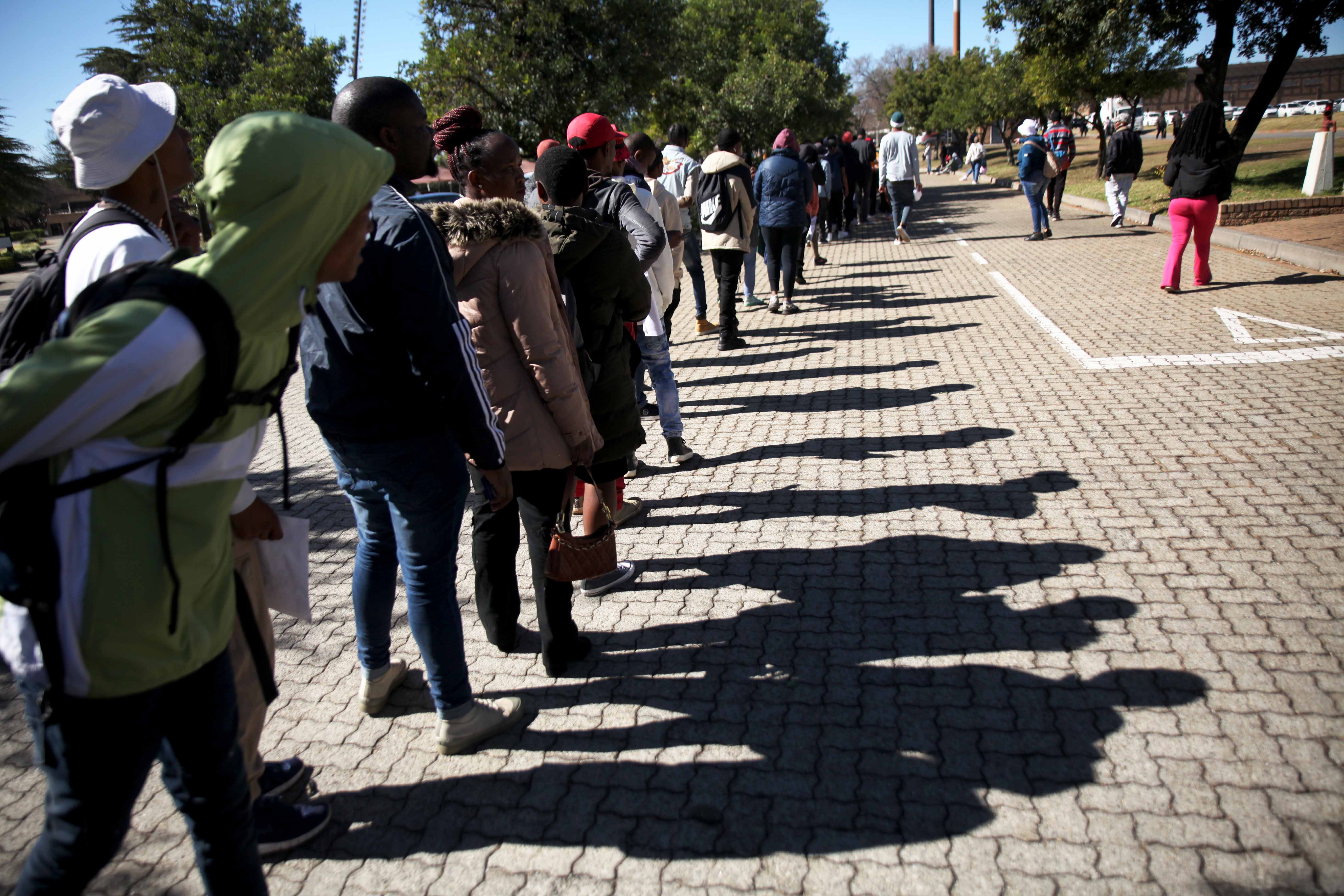Nearly 50 years have passed since the youth uprisings against the enforcement of Afrikaans in public schools that began on June 16, 1976, and which marked a pivotal moment in South Africa's history.
But after three decades of democracy, the young population — defined as those aged between 15 and 34 — continues to experience marginalisation and exclusion from the country’s economic sphere. More alarmingly, this demographic remains exceedingly vulnerable within the labour market.
Data from the Quarterly Labour Force Survey (QLFS) conducted by Statistics South Africa (StatsSA) illustrates that the first quarter of 2024 saw the number of unemployed young people increasing by 236,000, reaching a staggering 4.9 million, while the number of employed young people decreased by 7,000 to 5.9 million.
Consequently, the youth unemployment rate escalated by 1.3% from 44.3% in the last quarter of 2023 to 45.5% in the early months of 2024. This sad reality has even sparked debates and led some, like Ompile Makwiti in a report by Unicef, to question the significance and value of celebrating Youth Day in South Africa.
Pressures faced by young people
As we celebrate Youth Month, it’s imperative to recognise how young men of South Africa have forged new progressive masculinities that are centred on self-care, education, and taking care of their families as they pursue their desirable masculine identity, moving away from violent, military and risk-taking masculinities. These young men have broken free from the pressures of conformity and embrace their unique identities.
However, this journey towards redefining masculinities is not without its challenges, as the government continues to marginalise young people within South Africa. Young men of this country struggle to navigate their manhood as they fail to meet the expectations of being a man, which involves being able to fend for yourself and your family.
The unemployment rate has placed young men’s masculinity under pressure as they evolve, redefine, and renegotiate their masculinities to fit the current political state of the country.
Given the severe consequences of high youth unemployment in South Africa, urgent action is needed to address this pressing issue. The current situation leaves many young people unable to achieve financial independence, start families, and contribute to society.
Read more in Daily Maverick: We can only fix youth unemployment if we correct our broken education system
They are stuck in a state of “waithood”, where they cannot fully transition into adulthood due to the lack of employment opportunities. Desperate to survive and to escape “waithood”, many unemployed young people have turned to the informal sector to make a living.
Most work as street vendors, hawkers, waste pickers, cross-border traders and smugglers, while some engage in criminal networks as swindlers, traffickers and gangsters. Others have turned to other forms of crime, engaging in activities such as car hijackings, theft, and break-ins.
This widespread criminal behaviour does not only threaten public safety. It also affects the growth of various economic sectors, including the tourism industry. The tourism sector is an essential driver of the South African economy, but is suffering due to concerns about safety among travellers. Incidents like the robbery of a British Airways pilot in Johannesburg in January 2024 reinforce the perception of South Africa as a dangerous place to visit.
Read more in Daily Maverick: Tourism a critical key driver of economic growth but we must stop scoring own goals
Furthermore, some young people are resorting to using their sexuality to secure financial stability, engaging in relationships with older individuals for financial gain. This is a worrying issue highlighting the extreme lengths young people are willing to go to make ends meet in societies where unemployment is widespread.
Hence, “kuzoshuba” (the situation will get worse) if immediate steps are not taken to address the issue of youth unemployment in South Africa. The government needs to take the necessary measures to create employment opportunities and support the economic empowerment of the youth, thereby fostering a safer and more prosperous society for all.
What should be done to address high levels of youth unemployment?
One of the main causes of high unemployment rates in both developed and developing nations is corruption. John Mamokhere highlighted this issue and stated that the major obstacles to effective governance in the public sector continue to be fraud and corruption in local government and public service in general.
For instance, Willie Hofmeyr, the former head of the Special Investigative Unit (SIU), has stated that bribery and corruption cost South Africa around R30-billion annually. Moreover, in the Auditor-General report of the years 2017–2018, Advocate Gary Pienaar declared that more than 50% of public entities engaged in uncompetitive and unfair procurement processes, resulting in a loss of R28.4-billion by state-owned enterprises (SOEs).
To address the high levels of unemployment, the government must first combat corruption by deploying dedicated officials to safeguard state funds and hold accountable those who misuse public resources.
South Africa’s youth have diverse aspirations for their future; hence, solutions to unemployment rates should reflect these varied aspirations. While many youths aspire to obtain a university degree, a lack of experience often hinders their entry into the labour market. We propose implementing work-integrated learning programmes for all university disciplines to help students gain work experience.
For those who aspire to become entrepreneurs, we suggest that the government establish a network to tap into all the social networks of young people, as many are unaware of the available funds to assist them in starting and sustaining their businesses. These funds include the Youth Challenge Fund, Youth Pipeline Development Programme, Gro-E Youth Scheme, and Youth Technology Innovation Fund.
We hope that the new government of national unity of South Africa will prioritise the interests of young people as the youth is losing hope and trust in the government’s ability to help them achieve their dreams. DM
Katiso Buthelezi and Siboniso Sikhakhane are both sociology master's candidates at the University of Johannesburg.




